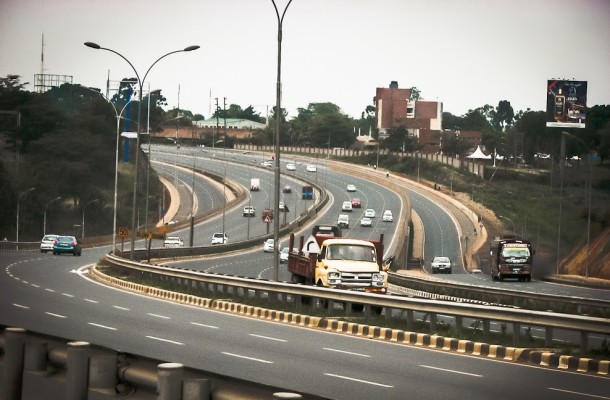
A Guide to Driving in Kenya: All you need to know
Planning to have a self drive road trip in Kenya? Knowing and following the traffic rules and regulations on Kenyan roads will guarantee you a safe and convenient driving experience.
Kenya, being an amazingly adventurous destination, exploring such a tourist rich country becomes easier with a 4×4 rental car. However, before you attempt to book a rental car to self drive Kenya, you must familiarize yourself with the following guidelines.
Generally, Kenya offers an extensive road network with well paved and maintained routes making it easy for local and International travelers to navigate and explore its diverse landscapes. Below are the essential guidelines of self driving in Kenya for a safe and reliable experience.
What are the road conditions in Kenya?
Kenya is composed of well paved roads, smooth highways and on the other hand rugged terrains and potholes especially outside the cities and busy towns. In the remote areas of Kenya, travelers must be so cautious as they drive since most of the routes have very rough road conditions.
In busy towns, cities and highways, driving in Kenya happens to be easier given to the smoothness of the road networks. However, travelers need to exercise a high level of patience while driving through busy towns and cities due to heavy traffic especially in peak hours.
Do I need an International Driver's License to self drive in Kenya?
No, you don’t need an International driver’s license to self drive in Kenya. Your valid National Driving Permit is enough to allow you drive in Kenya. However, if your national driving license is not in English, you should then move with an International Driver’s License just in case you get disturbed by the traffic police.
On what side of the road should I drive in Kenya?
Driving in Kenya is done on the Left.
Is it safe to self drive in Kenya?
Self driving in Kenya can be very safe and reliable provided you have a valid driver’s license and follow the traffic guidelines. In addition, since you are not so well versed with the routes in Kenya, it is so mindful of you to use a GPS locator. You are furthermore advised not to drive during night hours.
What are the speed limits in Kenya?
Kenya’s driving speed limits are 50KM/Hr in Cities and busy towns and 110KM/Hr on highways. Anything beyond the set limit will lead to big traffic fines that can lead to loss of your driver’s license.
What happens if my rental car breaks down during my self drive road trip in Kenya?
In case of a mechanical break down during your rental period, you basically have to contact us, share your current location with us, let us know about the break down and our agent will be with you in a short period of time accordingly.
Please note that you should not allow any mechanic who is not authorized by us to make any repairs. Additionally, you should not, make any kind of payment before being approved by our representative.
Can I cross the border from Kenya to Uganda or Tanzania?
Yes, you can cross the border to any East African country you wish. However, you must inform the car rental company as you are booking so they prepare border crossing documents for you.
Is Insurance included with my car rental in Kenya
Yes, a car rental insurance is included in the car rental costs. However, if you plan to cross the border, you will be required to pay for the East African Vehicle Insurance known as COMESA.
Important tips for first time travelers in Kenya
Before You Travel
1. Visa requirements: Check if you meet all the visa to enter Kenya and apply for it in advance. Atleast a week before your travel.
2. Vaccinations: Meet your doctor or a travel medical consultant about needed vaccinations, such as yellow fever, COVID19 and Malaria.
3. Travel insurance: Mind to purchase a travel insurance that covers your medical situations, trip cancellations, and disappointments in delay.
4. Research and planning: Make proper research an learn about Kenya’s culture, beliefs, and customs to avoid unintended offense.
Safety and Security
1. Be aware of your surroundings and stay informed about local conditions. All in all, avoid driving at night.
2. Keep valuables secure: Use hotel safes or lockboxes to store valuable items, and be cautious of pickpocketing or theft.
3. Avoid splashing cash, expensive jewelry or watches in public.
Health and Hygiene
1. Only drink sealed bottled water: Avoid drinking unfiltered water, and opt for bottled and sealed water instead.
2. Eat from reputable restaurants: Choose restaurants with good hygiene, and never should you eat undercooked meat or raw vegetables.
3. Always wear sunscreen, a hat, and sunglasses to protect yourself from the sun.
4. Take malaria precautions: Use insect repellents, sleep under mosquito nets, wear long-sleeved clothing, and take antimalarial medication if necessary.
Cultural Etiquette
1. Respect local culture: Learn about Kenyan customs, such as greeting elders with respect and removing shoes when entering homes or mosques.
2. Dress modestly: Avoid revealing clothing, especially when visiting rural areas or attending cultural events.
3. Use your right hand: When eating, giving or receiving items, use your right hand, as the left hand is considered unclean.
4. Learn some Swahili phrases: Show respect by learning basic Swahili phrases, such as “jambo” (hello) and “asante” (thank you).
Miscellaneous Tips
1. Bring a power adapter: Kenya uses Type G power sockets, which are different from those in North America.
2. Stay connected: Purchase a local SIM card or use a portable Wi-Fi hotspot to stay connected.
3. Bargain and negotiate: When shopping at markets or from street vendors, be prepared to bargain and negotiate prices.
4. Enjoy yourself: Relax, be open-minded, and enjoy the beauty and hospitality of Kenya!